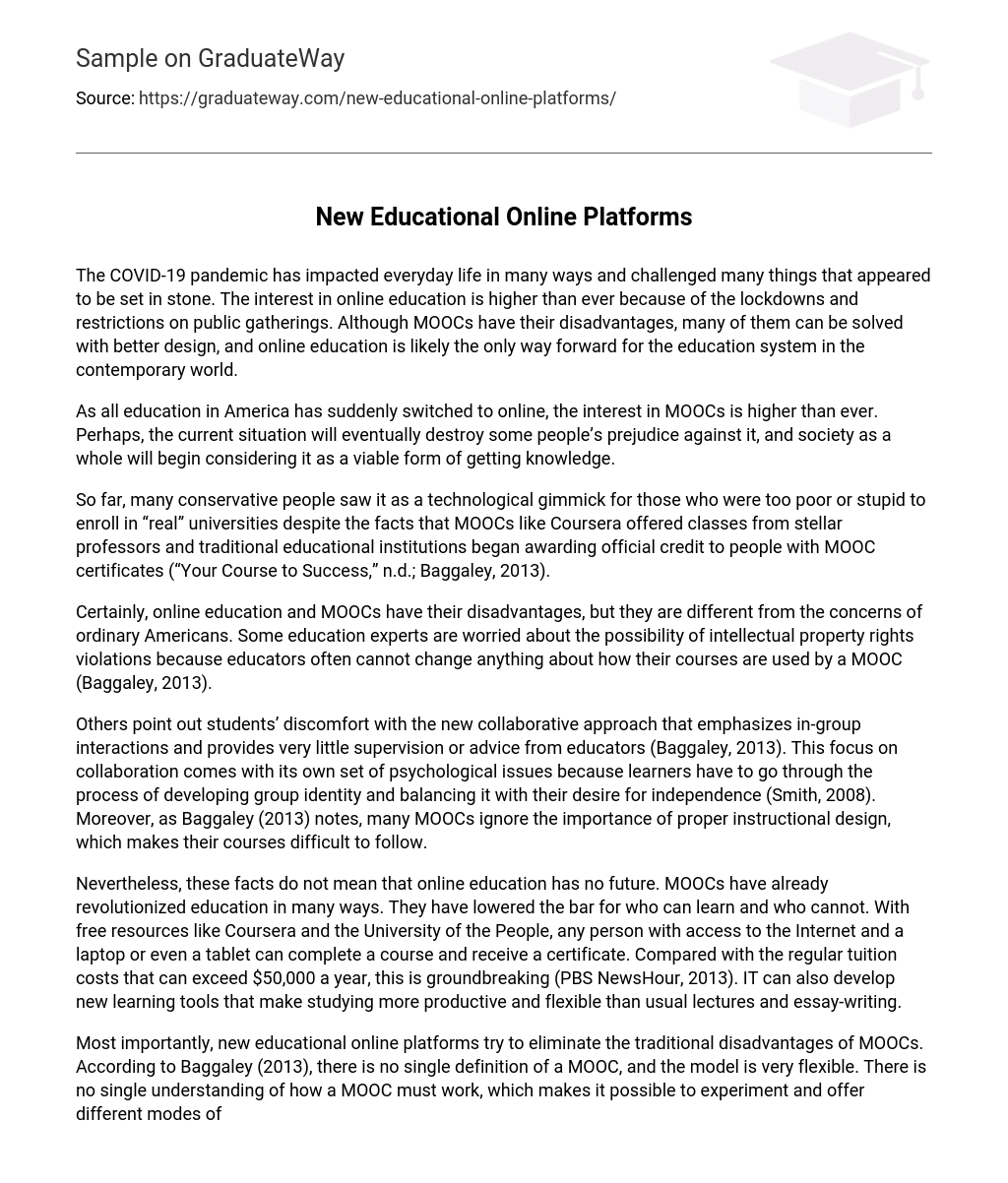The COVID-19 pandemic has impacted everyday life in many ways and challenged many things that appeared to be set in stone. The interest in online education is higher than ever because of the lockdowns and restrictions on public gatherings. Although MOOCs have their disadvantages, many of them can be solved with better design, and online education is likely the only way forward for the education system in the contemporary world.
As all education in America has suddenly switched to online, the interest in MOOCs is higher than ever. Perhaps, the current situation will eventually destroy some people’s prejudice against it, and society as a whole will begin considering it as a viable form of getting knowledge.
So far, many conservative people saw it as a technological gimmick for those who were too poor or stupid to enroll in “real” universities despite the facts that MOOCs like Coursera offered classes from stellar professors and traditional educational institutions began awarding official credit to people with MOOC certificates (“Your Course to Success,” n.d.; Baggaley, 2013).
Certainly, online education and MOOCs have their disadvantages, but they are different from the concerns of ordinary Americans. Some education experts are worried about the possibility of intellectual property rights violations because educators often cannot change anything about how their courses are used by a MOOC (Baggaley, 2013).
Others point out students’ discomfort with the new collaborative approach that emphasizes in-group interactions and provides very little supervision or advice from educators (Baggaley, 2013). This focus on collaboration comes with its own set of psychological issues because learners have to go through the process of developing group identity and balancing it with their desire for independence (Smith, 2008). Moreover, as Baggaley (2013) notes, many MOOCs ignore the importance of proper instructional design, which makes their courses difficult to follow.
Nevertheless, these facts do not mean that online education has no future. MOOCs have already revolutionized education in many ways. They have lowered the bar for who can learn and who cannot. With free resources like Coursera and the University of the People, any person with access to the Internet and a laptop or even a tablet can complete a course and receive a certificate. Compared with the regular tuition costs that can exceed $50,000 a year, this is groundbreaking (PBS NewsHour, 2013). IT can also develop new learning tools that make studying more productive and flexible than usual lectures and essay-writing.
Most importantly, new educational online platforms try to eliminate the traditional disadvantages of MOOCs. According to Baggaley (2013), there is no single definition of a MOOC, and the model is very flexible. There is no single understanding of how a MOOC must work, which makes it possible to experiment and offer different modes of learning.
For example, the University of the People emphasizes the small size of its classes and the close contact with professors—the factors that the opponents of online education considered the biggest strengths of traditional classes (“University of the People,” n.d.; PBS NewsHour, 2013).
To conclude, online education will not disappear. Moreover, MOOCs seem to be the game-changers who can offer new rules and revolutionize higher education. Traditionally, a college education was seen as a privilege that helped to distinguish between cultured and common people. In the modern globalized world with its high technologies, knowledge is more of a moneymaking tool and less of a marker of social class.
It is no longer a luxury but a common necessity, and it is not surprising that young Americans are unhappy with the system in which they have to pay a fortune for a diploma. The pandemic has already blurred the line between “real” universities and MOOCs because everything is online now, and traditional institutions have to either adapt to the new rules or be replaced by much cheaper and flexible MOOCs.





